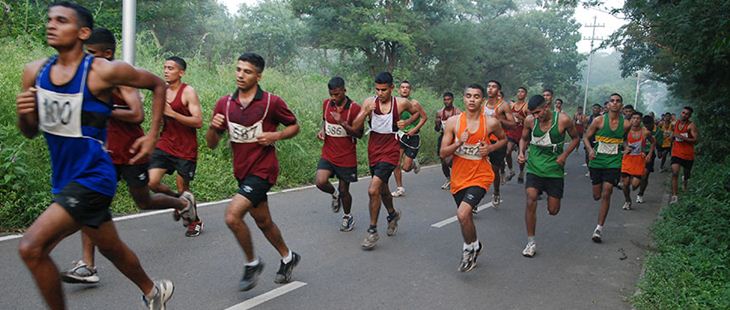Tokyo Olympics turned out to be a special and historic moment in India’s sporting sector. Not only did we win the highest number of medals to date at the world’s biggest sporting event, but also bagged the second Gold medal in an individual event. It is however no coincidence that Subedar Neeraj Chopra, one of the two Indians to win an individual Olympics gold medal, comes from the Indian Armed Forces.
Sunder Neeraj Chopra VSM is a Junior Commissioned Officer (JCO) in the Rajputana Rifles. The Indian Army has played a significant role in driving him to the Olympics gold medal. Neeraj was appointed as a Naik Subedar in 2016. When asked about the credit for Chopra’s success, an official of the Indian Amy’s Mission Olympics wing said that it was a team effort involving Federations, Sports Authority of India, and the Indian Army worked silently in the process.
However, Subedar Chopra is just an example of many legendary athletes the Indian defence forces have produced over the years. The capability of the defence forces to produce champions is always acknowledged. In 2013, the then Chief Minister of Gujarat and sitting Prime Minister of India, Narendra Modi emphasised that the defence forces should be given a greater role in India’s sports sector.
At that time, Narendra Modi, the then CM of Gujarat, had said, “During Olympics, people often say despite its huge size, we don’t get medals. Have we linked sports with our education system? Did we give enough opportunity to our youth…? Believe me, if you give our defence forces this responsibility and match the potential of the recruits in the interested sports and then train them properly, we will earn 5-7 medals even without much effort. It requires vision!”
Indeed, the armed forces have a lot of capability when it comes to producing medal-winning athletes. Take the 2018 Asian Games, for example, the Indian defence forces dominated the big event three years ago. They reportedly won at least 14 medals, including four gold, five silver and five bronze medals.
The Indian Army managed to send as many as sixty-six sportspersons to participate across 18 events at the 2018 Asian Games. The Indian Army maintains a systematic arrangement for promoting sports and taps into an outside talent with two entry programmes- the ‘Boys Sports Company’ (BSC) that provides sports training to boys aged between 10 and 16 years, and a direct entry scheme for recruitment as Havildar and Naib Subedar for sportspersons in the age group of 16 to 18 years with recognizable achievement at the national and international level.
#IndianArmy personnel at #AsianGames2018 has till now won total of 08 medals , 02 #Gold, 03 #Silver and 03 #Bronze. #Winning spree continues. #WeAreProudOfYou #IndianArmyAtAsianGames #WinningIsOurHabit @PIB_India @SpokespersonMoD @HQ_IDS_India pic.twitter.com/V9V0iZ3OMv
— ADG PI – INDIAN ARMY (@adgpi) August 29, 2018
Also, the Indian Army does identify its personnel who show potential in sports and train and nurture them further. It is because of this culture that the Indian Army has produced athletes like Milka Singh, Paan Singh Tomar, and Subedar Major Vijay Kumar, who won a silver medal at the 2012 London Olympics, Colonel Rajyavardhan Singh Rathore AVSM, who won silver at the 2004 Olympics and Colonel Balbir Singh Kular VSM, a celebrated hockey player in the 1960s.
The defence forces are expected to make India proud at the future Olympics all over again to inflate India’s medal tally. Currently, the Indian Army is running the “Mission Olympic Wing” with the object of improving the overall standards of the sportspersons. The programme has five nodes, namely the Army Sports Institute (Pune), Army Marksmanship Unit (Mhow), Army Rowing Node (Pune), Army Yachting Node (Mumbai) and Army Equestrian Node (Meerut).
A pool of 450 senior athletes is presently training under the Indian Army’s ‘Mission Olympics Wing’. So, the Indian Army is potentially producing dozens of Olympics medal hopefuls.
Read More: 7 medals at Olympics- How Modi government is empowering India’s athletes
Going ahead, sports must be more closely tied up with the Indian defence forces. There is a need to launch a tri-services sports programme so that potential talent can be identified across all wings of the defence forces, as well as other security forces. India can become a leading Olympics power, provided it substantially entrusts the responsibility of training the country’s athletes to the armed forces.
